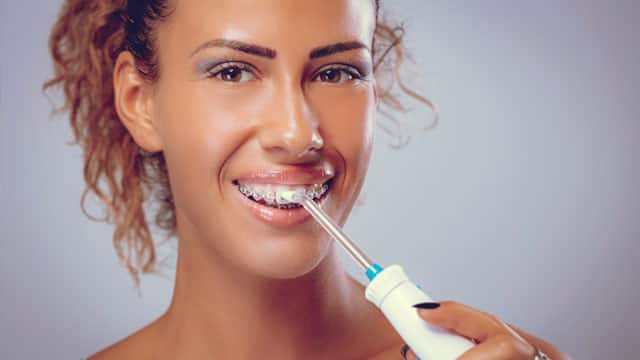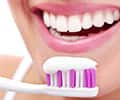Types of Electric Flossers
Water flossers and air flossers are two types of electric flossers available. Both clean between the teeth and around the gumline. This is what makes them different:
How Do Electric Flossers Work?
Both flossers operate with a motor or pump that pushes water into a reservoir. From there, the water goes through the flosser tip. Flossers work by sending steady pulses in between the spaces of your teeth. The pressure of the stream loosens and rinses away food particles, debris, and plaque from in between your teeth.
There are battery-operated flossers that you plug in to charge. The other flossers need to be plugged in while using.
Are Electric Flossers As Effective as Traditional Floss?
If you struggle with or don’t like traditional flossing by hand, electric flossing is the way to go. According to the ADA, flossers are considered an excellent way to clean between your teeth. They even list ones that have their seal of acceptance. This means the ADA found them to be safe and effective in removing plaque and fighting gingivitis.
Who Benefits From Electric Flossers?
String floss can be tricky, especially if you have braces, dental bridges, or arthritis. According to the ADA, electric flossers are a good option for people with dental work or difficulty flossing by hand.
Flossing is an essential part of your oral care routine. Cleaning between teeth after each meal is instrumental in removing plaque and keeping gingivitis and periodontal disease under control. If you are happy flossing by hand, that’s great. Keep it up! However, if you’re someone who isn’t flossing because you find it difficult or you don’t enjoy it, consider using an electric flosser. Talk it over with your dental professional. They will help you find what’s best for you and your oral health.
ORAL HEALTH QUIZ
What's behind your smile?
Take our Oral Health assessment to get the most from your oral care routine
ORAL HEALTH QUIZ
What's behind your smile?
Take our Oral Health assessment to get the most from your oral care routine
This article is intended to promote understanding of and knowledge about general oral health topics. It is not intended to be a substitute for professional advice, diagnosis or treatment. Always seek the advice of your dentist or other qualified healthcare provider with any questions you may have regarding a medical condition or treatment.
Join Us
Get the best of your oral health routine and take it to the next level with expert advice, recommendations, products and solutions and special offers.
Join Us
Get the best of your oral health routine and take it to the next level with expert advice, recommendations, products and solutions and special offers.















